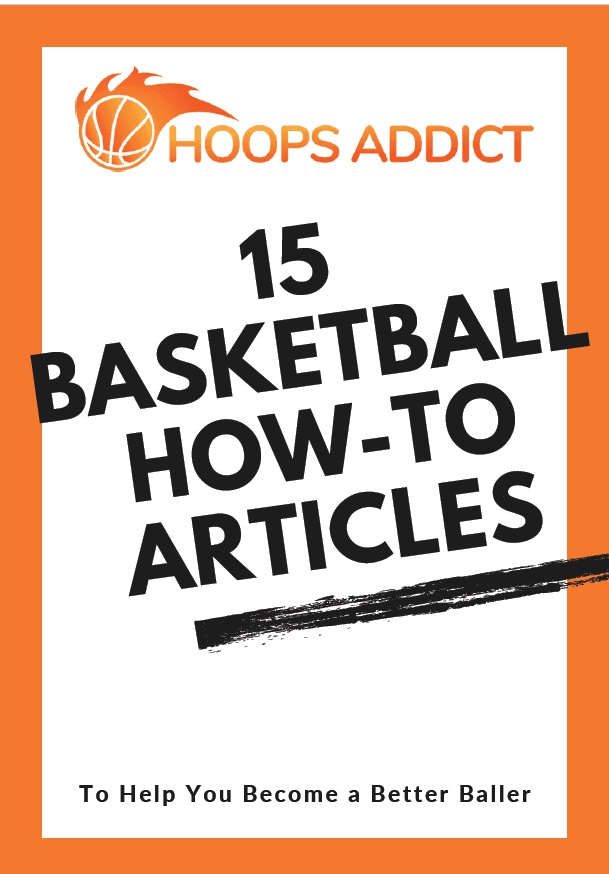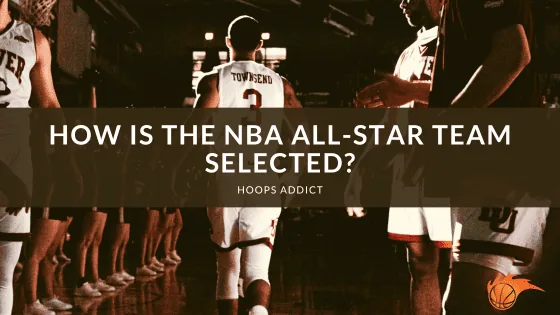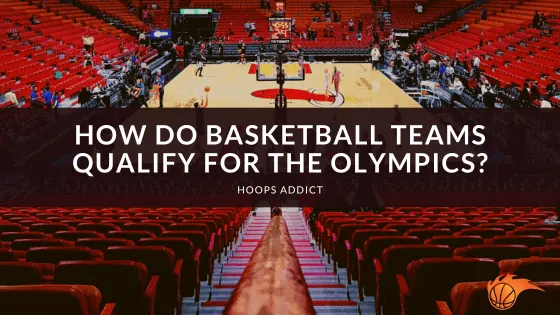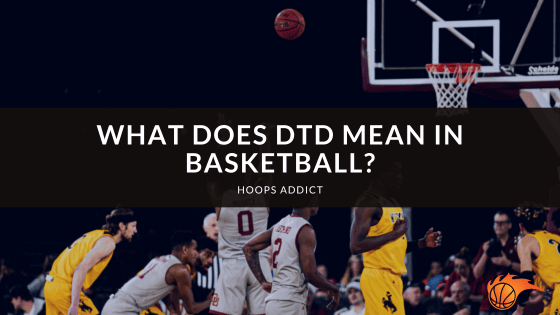Everything in the life of a professional basketball player is pretty much measured and calibrated. From the number of shots taken in practice to the number of macronutrients in a pre-game meal, all must be fine-tuned. Speaking of meals, have you ever asked yourself, “What do NBA players eat before and after a game?” After all, basketball is such a high-intensity sport that everything matters to keep your body in a superb state round the clock.
 What are NBA Players Diet?
What are NBA Players Diet?
You have probably heard the saying, ‘you are what you eat.’ There is an undeniable connection between nutrition and on-court performance. Kobe Bryant was said to eat pepperoni pizza before games when he was younger but was later forced to change his eating ways because he felt bloated.
Truth be told, NBA players’ diets vary a lot, and that makes sense. Each of us responds differently to food. And as we all know, the younger you are, the better your metabolism handles junk food. But at some point, like Bryant, the majority of these players realize that they just couldn’t be eating chips, burgers, and sodas, foods basketball players should not eat frequently.
Speaking of different diets, here are some examples. During the 2014 season, LeBron James and Carmelo Anthony went on a low-carb, high-fat diet that made them lose 15 pounds. Javale McGee, Chris Paul, Kyrie Irving, and many others are vegan. The point is, whatever works for them and feels best for their body, these players are going to do it. If you feel good, that’s going to translate well into the court.
To give you an idea of how NBA players consume the three most important macronutrients, here is how:
Carbohydrates
Carbs are an easy fuel choice for the body. If NBA players need a quick burst of energy, consuming carbohydrates is a proven method. However, to keep the body in tiptop shape, the choice of carbohydrate type is essential. Complex carbs found in foods such as vegetables and whole grains are considerably better than white bread, fruit juice concentrates, or anything with sugar or high fructose corn syrup.
Protein
It’s important to eat protein substantial amounts as an athlete. This macronutrient ensures healthy muscles and cell structure. While it’s not wrong to indulge in steaks and red meat once in a while, protein choices such as fish and chicken are probably the better choice.
Fats
Fats are vilified by many people, but it is absolutely essential for healthy bodily function. Granted, there is such a thing as a good type of fat and a wrong kind. Like your protein choice, you can quickly tell the good fats if it’s not processed. Nuts, avocados, eggs, and salmon are excellent sources of healthy fats.
Many nutritionists do not recommend eating too many saturated fats, but it may be alright if you’re doing the ketogenic diet. The real culprit is trans fats found in processed oils and margarine. Seed oils like canola and grapeseed oils are highly processed and contain more omega-6 fatty acids than omega-3. Omega-3 fatty acids are known to have positive effects on cardiovascular health.
 How Many Calories Does an NBA Player Eat?
How Many Calories Does an NBA Player Eat?
Because NBA players vary individually in their eating regimen, this question cannot be answered with 100% certainty. It largely depends on the player’s body size and what he is working on.
In terms of energy needs, someone who plays basketball should eat a lot of calories. A 7-foot pro basketball player training at least an hour a day may need to eat up to 7,000 calories to keep his body fueled. As a general rule, athletes who train 90 minutes a day need 23 calories for every pound of their body weight daily.
Let’s pick someone as an example here. As a 7-foot-1, 205-pound rookie, Thon Maker was put on a 6,000 calorie diet by the nutrition team for the Milwaukee Bucks. That’s easily double the amount of food that a normal human being eats every day. To put that in perspective, 6,000 calories is equivalent to 23 and a half Big Macs! I mean, you probably love food as much as the next guy, but that’s seriously nauseating.
Again, NBA players have different body types and different eating regimens to follow. But because of how much they train, it’s no surprise that they need large amounts of food to keep going. LeBron James, for example, is said to eat as much as 5,000 calories a day during the height of an NBA season. Not everyone is LeBron, obviously, but it’s not uncommon for NBA players to eat an average of 4,000 calories a day.
What Do NBA Players Eat Before a Game?
The players eat everything from peanut butter and jelly sandwiches to chicken and pasta. In one episode of Open Court, Steve Kerr told a story about former teammate Toni Kukoc’s pregame meal. It wasn’t actually a meal; it’s more like a feast. Kerr recalled that Kukoc ordered pasta, chicken, appetizers, salad, tiramisu, and a glass of red wine before a game.
Steve Kerr’s reaction to Toni Kukoc’s pregame meal must’ve been hilarious 😆
Game rituals, presented by @BudweiserUSA: pic.twitter.com/n7bCrs2KtR
— Chicago Bulls (@chicagobulls) May 20, 2020
While Kukoc gorging on that much food is the exception to the norm, NBA players are superstitious and eat almost the same stuff before a game. Here are some NBA player meals right before a match:
- LeBron James– Chicken breast, pasta, with salad and some veggies
- Steph Curry– Pasta or PB&J sandwich
- Mike Muscala– Granola bar or PB&J sandwich
- Kevin Durant– Grilled salmon, rice pilaf, and sauteed spinach
- Russell Westbrook– Two PB&J sandwiches
- Anthony Davis– Tortellini and chicken breast
As you may have noticed, these huge human beings eat a lot and often. While many have cleaned up their junk food habit, especially after years of playing, they will indulge every now and then. Did you also happen to notice the presence of PB&J sandwiches in our pregame meal samples from specific players?
At first glance, one can argue that PB&J sandwiches should not be a part of an NBA player diet plan. It doesn’t hold much nutritional value and is full of sugar and simple carbs. However, a closer look at an NBA player’s life would help us understand this choice.
An NBA player is often on the road and spends more time in hotels and airplanes for the season than their homes. A PB&J sandwich is comfort food that’s convenient and easy to make. It may not be the best pregame meal, but it may give players an advantage psychologically.
What Do NBA Players Eat After a Game?
Most NBA players eat a light pregame meal, but postgame is a different story. NBA players who play a lot of minutes treat postgame meals as a way to recover faster.
Of course, not everyone drives the healthy highway. You have probably heard about how Dwight Howard binged candy and soda or Charles Barkley gorging on pizzas. But many still elect for a protein and carb mix that may include protein shakes, chicken, fish, whole grains, or fruits. Kevin Durant eats steak, chicken, and rice after a grueling game.
According to nutrition experts, NBA player meals after a game should be something natural and organic. Sugar slows down the recovery process, so that’s a no-no. Sometimes it’s more about the foods basketball players should not eat rather than what they should eat. If you can easily identify what’s not good for you, then the choice is much easier.
Do NBA Players Eat During a Game?
There really is no rule preventing a player from eating during a game. With that being said, it’s extremely rare to see a player do it. They often just drink water or Gatorade. However, if they feel they need to take a bite, they would. Steph Curry was spotted eating a banana during a game, LeBron James indulging on some candy, and Spencer Dinwiddie enjoying what appears to be chocolate from the bench.
What Do NBA Players Eat at Halftime?
NBA players do a lot of things at halftime. The team may go over strategies, the coach may say a pep talk, and players may confer something with the trainers, but I’m pretty sure eating is the last thing on the checklist.
However, it’s not exactly out of the realm of possibility if the main rotation guys would be spent and hungry after 18 minutes of playing time. There was a story about Kevin Garnett complaining about starving at halftime and so the Celtics brought in PB&J sandwiches. There is no way to verify this story, but again, it’s not impossible.
If teams ever bring light snacks for their teams at halftime, you may envision it as something convenient (like PB&J) or something healthy (such as fruits). In any case, NBA players probably drink a lot of water to replenish the fluids lost during the game, and the halftime break is a suitable time to do that as well.
Should NBA Players Carbo Load?
Complex carbohydrates are basic fuel courses for athletes. Michael Phelps infamously loads up on carbo during peak training, eating french toasts, pizzas, and whatnot in a crazy 12,000-calorie diet. Like Phelps, cyclists and marathoners also do the same.
But should NBA players follow suit and do carb-loading as part of the NBA player diet plan? The answer is a straight no. First and foremost, carbo-loading is not as simple as eating half a pound of pasta in one sitting. It is a process that takes place over several days and should only be done if you engage in an activity that lasts at least 90 minutes. A basketball game lasts only 48 minutes, and even the high-usage players barely play 40 minutes, if at all.
Therefore, carbo-loading is not for everybody. If you do endurance sports, you may consider it, but it’s not a requirement. Some who participate in endurance races do not load up on carbo in the days leading to the competition. The truth is, it’s not a nutrition standard even in endurance sports because the body may not respond well to it. If done improperly, it could backfire and could lead to weight gain and sluggishness.
So, how many carbs should a basketball player eat? Experts say you need 2.7 grams of carbs per pound of body weight, and that’s for the average person. For athletes, that number goes up to 3.6 to 4.5 grams. Even so, you should choose healthy kinds of carbs with lots of fiber.
Wrapping Things Up: What Do NBA Players Eat?
The NBA diet has come a long way. Unlike basketball players from the 50s to the 80s, modern NBA players have substantial knowledge of nutrition and recovery. Additionally, they add significant amounts of weight training to their regimen, and franchises put together nutrition teams to guide the players’ choice of food.
Still, food choices are virtually endless. And for people who play such high-intensity sport as basketball, the number of calories needed is critical to keep them fueled for performance. At the height of the season, NBA players had to practice, train, and play games for hours almost every day. That is why it’s not uncommon to see them consume 4,000 to 6,000 calories every single day!
Now, what do NBA players eat before a game? Again, the choice is practically infinite. LeBron James, for example, likes to eat chicken breast, veggies, and pasta. A lot of players also eat peanut butter and jelly sandwiches, comfort food that’s also easy to prepare. If done right, PB&J sandwiches could give you the right amount of carbs, protein, and fats needed to continue playing the game at an optimal pace.
What about after the game? Well, NBA players focus on recovery after a match, so they may often opt for something healthy like fish and chicken. They also make sure to stay away from sugary drinks and food because sugar interferes with the recovery process.
To this extent, what conclusion can we draw about what do NBA players eat?
First of all, they eat a lot, mainly out of necessity. But with that much food needed to be consumed to fuel their bodies, they also have to make smart choices. It’s not wrong to indulge in soda and junk food at times, even though these are considered foods that basketball players should not eat. However, if they want to have long and fruitful careers, knowing what to eat is one of the things they can control.
Curious about what NBA players do before a game? Check out this article.
Want to get better at basketball?
Join our newsletter & get our comprehensive
101-page basketball guide.
Become a better baller today 👇


 What are NBA Players Diet?
What are NBA Players Diet? How Many Calories Does an NBA Player Eat?
How Many Calories Does an NBA Player Eat?






